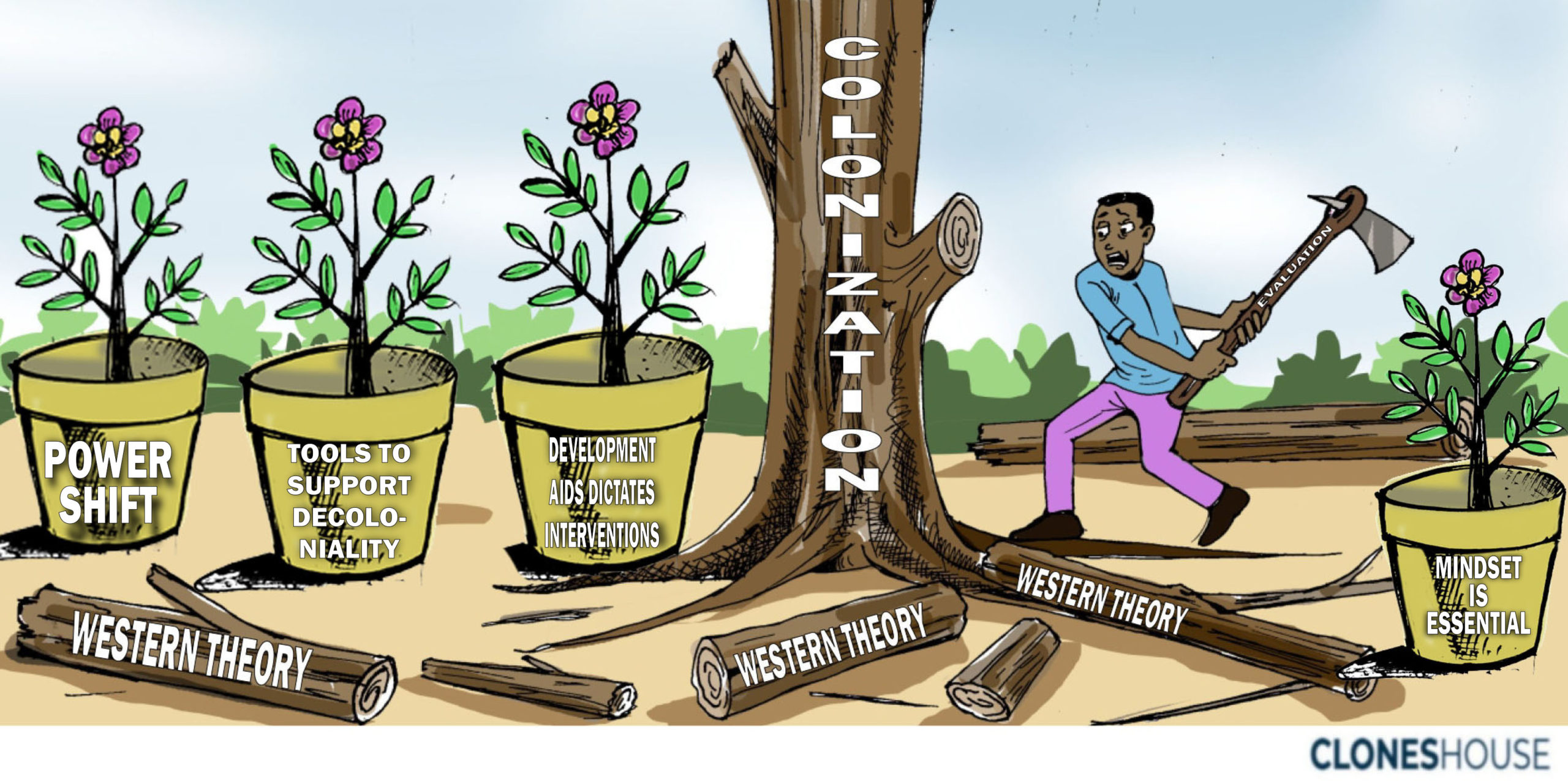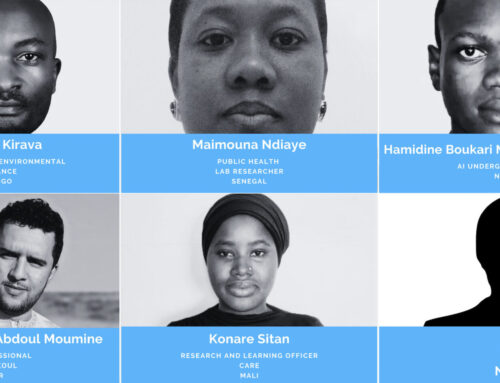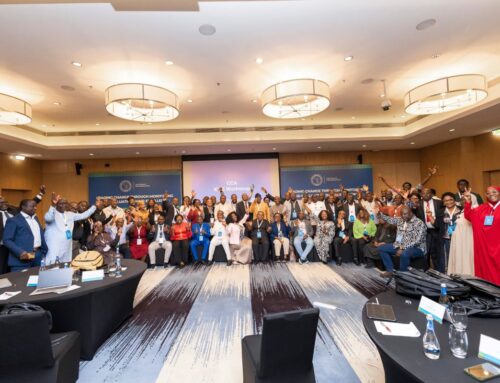Introduction
In the words of Vernon Howard, “Always walk through life as if you have something new to learn, and you will.” This quote perfectly summarizes my mindset when I enrolled for the Mastercard Foundation – CLEAR AA Course on Decolonizing Evaluation. Not knowing what to expect, but I was somewhat eager to meet other course participants to engage and make the most of the learning moment. My curiosity was heightened when I discovered that the course participants were all Young Impact Associates (YIAs) from Rwanda, Kenya, Uganda, Ghana, and Nigeria. The thoughts of connecting, building friendships, and learning alongside the other YIAs increased my interest in the course. The course structure comprised three self-space modules (Introduction to Decoloniality, Contemporary Africa Evaluation Dilemmas, and Linking Decolonality to Evaluation). We had three contact sessions with instructors and co-participants, mandatory reading materials, and supplementary reading resources. The modules examined issues ranging from decoloniality in the evaluation sector, Made in Africa Evaluation, and power tussles in international development. Of the topics and concepts, the course exposed me to, I got more interested in power dynamics in international development evaluations. In this blog post, I shared my thoughts on key lessons from the course, emphasizing power influence on evaluation. Here are the four lessons I learned from the CLEAR AA course on Decolonizing Evaluation:
- Power Dynamics Exist in Evaluation: The power dynamics in international development evaluations truly exist and have significant implications on evaluation. Evaluators must first and foremost acknowledge this and critically examine the power dynamics at play in the evaluation context. According to H.S Bhola, evaluation is often seen as externally imposed activities on local communities by donors which weakens likely outcomes and ownership. This is in agreement with Rosie O. Emerson viewpoint that evaluation is not value neutral, therefore evaluators must be conscious of who holds power, how they use it,explore power shaing opportunities and the potential impacts of the power asymmetries on the evaluation process and outcomes.
- Evaluators Must Take Sides: One implication of power dynamics on evaluation design is the need for evaluators to be conscious of their positioning and biases. Evaluation is not objective or value-neutral, and evaluators must take responsibility for their positioning and reflect on whose interests are being served by their work. To address this, evaluators should strive to engage in reflexive practice, acknowledging their biases and working to ensure that the evaluation process and outcomes are fair and just.
- Stakeholders Engagement is Key: Another implication is the need for evaluators to engage in meaningful stakeholder engagement. As evaluation experiences have shown, evaluators face tensions in meeting diverse stakeholders’ conflicting needs and interests, and power asymmetries can make it difficult to ensure that all voices are heard. Hallie Preskill and Nathalie Jones in their book, “A Practical Guide for Engaging Stakeholders in Developing Evaluation Questions” holds that evaluations where stakeholders are adequately involve are more likely to be accepted with less resistance. Thus, evaluators must engage stakeholders in the evaluation process in meaningful ways, including identifying and addressing power imbalances and ensuring that the perspectives of less powerful stakeholders are heard and incorporated into the evaluation processes and outcomes.
- Power Dynamics can Wreck Evaluation: Power disparities affect the overall design and methodology of an evaluation. Srilatha Batliwala in her book advised that evaluators must consider the potential impacts of power imbalances on data collection, analysis, and reporting. For example, power asymmetries may make obtaining honest and unbiased feedback from stakeholders difficult or result in a lack of access to important information. To address this gap, evaluators must carefully consider their evaluation design and methodology, ensuring that the data collected is accurate, reliable, and reflective of the perspectives of all stakeholders.
Conclusion
Power dynamics in international development evaluations have significant implications for evaluation designs and potential outcomes. This power tussle has come to stay. Therefore, evaluators must be conscious of their stands and biases, engage stakeholders in meaningful ways, and carefully consider the design and approach of the evaluation to ensure that it is fair, just, and reflective of all voices. By doing so, it will increase trust, and accountability and ensure that evaluation practices contribute to positive social change and transformation.
About the Author
Godwin Kwaghngee, a Mastercard Foundation Young Impact Associate. Godwin is a Young and Emerging evaluator with experience in data management, research, training, and knowledge facilitation. He is a team player with exceptional analytic, communication, and relationship skills committed to advancing organizational vision.
Reference
- Bhola, H.. (2003). Social and Cultural Contexts of Educational Evaluation: A Global Perspective. 10.1007/978-94-010-0309-4_25.
- Emerson, Rosie. (2020). Power dynamics in international development evaluations: A case study of the Girls Education Challenge programme. African Evaluation Journal. 8. 10.4102/aej.v8i1.459.
- https://creaworld.org/wp-content/uploads/2020/07/All-About-Power.pdf





Godwin, thank you! your insights on key lessons from the CLEAR AA course on decolonizing evaluation are well-articulated and they are crucial for us evaluators to consider when conducting evaluations.
As evaluators, we need to work towards minimizing power impact and promoting more equitable and inclusive evaluation practices, self-reflection will enable evaluators to mitigate potential biases and ensure fairness in the evaluation process. By addressing power imbalances and actively involving stakeholders, evaluators can increase the acceptance and credibility of evaluation outcomes. Lastly, evaluators must consider knowing who has the power, when they use it to influence, and what they influence to be able to design appropriate strategies for meaningful evaluations to contribute to equitable and transformative evaluation practices.